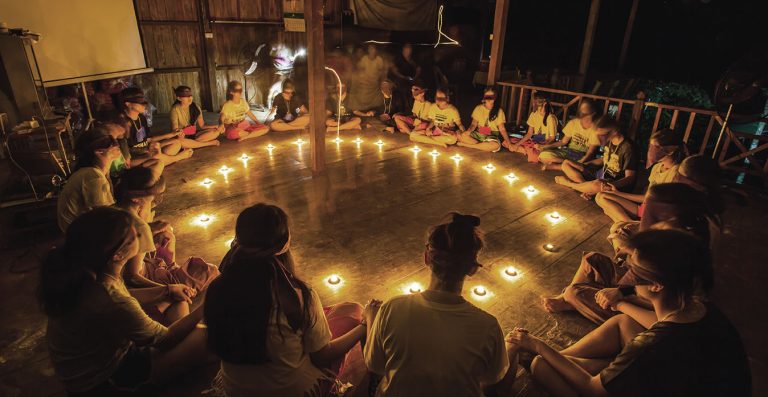
The Great Psychedelic Certification Hustle: Who Decides Who’s Legit?
Table of Contents
Have you ever sat in ceremony with someone—maybe an elder, maybe a guide, maybe just someone who had been through some shit—and thought, “This person just knows.” Not because they had a certificate on the wall. Not because they paid $15,000 for a training course. But because their presence, their integrity, and their lived experience were undeniable.
Now, have you ever met someone who had all the credentials in the world but couldn’t hold space for a mildly uncomfortable dinner conversation, let alone a psychedelic journey?
Yeah. Same.
And yet, here we are, in 2025, watching an entire industry shift toward officially-sanctioned psychedelic certification programs—some state-backed, some private, but all of them claiming to define who is “qualified” to do this work. On paper, it sounds like progress. More training, more structure, more “legitimacy,” right?
But let’s take a breath. Let’s actually sit with this for a second.
Because beneath all the buzzwords—safety, ethics, professionalism—there’s a much bigger conversation happening. A conversation about power, access, and control. About who gets to heal, who gets to guide, and who gets pushed out.
And if we don’t start questioning this now, we are going to wake up in a world where psychedelic healing is just another elite industry, priced and regulated out of reach for the people who need it most.
So let’s talk about it.
The Rise of Psychedelic Certification: A Blessing or a Barrier?
Right now, there’s an explosion of psychedelic training programs, ranging from high-end private courses to state-sanctioned facilitator training in Oregon and Colorado. These programs claim to be paving the way for a safer, more professional psychedelic field. Some of them have solid content. Some of them are built by well-intentioned people who care deeply about this work.
But there’s a problem. A big one.
1. There Is No Central Governing Body (And That Matters)
If you’ve ever looked into life coaching programs, you’ve probably noticed that anyone can create a coaching certification. Some are backed by the International Coaching Federation (ICF), which at least attempts to standardize ethics and best practices. Others? They’re just self-proclaimed certifications with no oversight (Harvard Business Review).
Psychedelic certifications are exactly the same right now. There is no universally recognized regulatory body determining what makes a facilitator “qualified.” This means:
- Anyone can create a certification program and sell it as the “gold standard.”
- The definition of competency is based on whoever is running the program.
- Most programs self-govern, meaning they decide their own rules, their own pricing, and their own requirements.
So when someone waves around a Certified Psychedelic Facilitator™ badge, the question should be: Certified by whom? Under whose authority? And who benefits from this structure?
2. The Cost Creates a Gatekeeping System
Let’s talk numbers.
- Oregon’s psilocybin facilitator training costs anywhere from $8,000 to $15,000 (Psychedelic Science Review).
- Private psychedelic coaching programs charge anywhere from $5,000 to $20,000.
- And that’s just for certification. If you want to legally practice in a licensed center, you’ll also need to pay licensing fees, business fees, and operational costs.
Who, exactly, can afford that?
Certainly not the grassroots healers, community practitioners, or underground guides who have been holding space for decades. Certainly not the people who come from BIPOC, queer, working-class, or non-traditional backgrounds—the very people who have historically had their practices dismissed, criminalized, or co-opted.
What we’re seeing is the early stages of psychedelic healing becoming a luxury industry. One where, in a few years, the only people allowed to practice legally will be those who had the money, time, and privilege to go through the system.
Meanwhile, those who choose to practice outside of these structures will be seen as “illegitimate,” no matter how much lived experience they have.
3. The Narrative of “Certification = Safety” is Misleading
I will never argue against quality training. I have trained. I have invested in my own learning. I believe in deep study, mentorship, and rigorous ethical grounding.
But let’s get one thing straight:
Certification does not guarantee that someone is safe, ethical, or competent.
- We have seen licensed therapists abuse their power.
- We have seen certified professionals cross ethical lines.
- We have seen paper-perfect credentials fail to translate into real-world wisdom.
Meanwhile, we have also seen incredibly skilled, ethical, and intuitive space-holders who have no formal certification at all.
4. Even the Most “Legit” Programs Aren’t As Stable As They Seem
The Synthesis Institute’s sudden collapse in 2023 left students scrambling for refunds and raised serious questions about whether these high-cost programs actually have the infrastructure to sustain themselves (Willamette Week).
If even they couldn’t hold it together, how much faith should we have in these new pay-to-play models?
So Where Do We Go From Here?
If you’re reading this and feeling fired up—good. You should be. This isn’t just about one person’s decision to get certified or not. This is about the entire trajectory of psychedelic work and whether it remains a healing practice accessible to all or turns into yet another industry controlled by wealth and exclusivity.
What I Believe:
✨ If certification is the path that feels right for you—go for it. But do it with awareness of what it does (and doesn’t) mean.
✨ If mentorship, apprenticeship, and direct experience are your path—honor that.
✨ If you are questioning this whole system—you are not alone.
We need to have this conversation now, before the industry cements these systems as “official” and makes them impossible to challenge.
Because in five years, when psychedelic facilitation is a regulated industry, when underground guides are being pushed out, when healing is a luxury for the privileged—we will wish we had asked these questions sooner.





